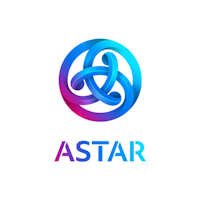Shibuya Testnet Blockchain
Data Indexing API (suspended)
Shibuya Testnet Quick Facts
-
Unified API Developer Docs
Tutorials, guides and references on the Unified API.
Unified API Reference
Complete reference documentation for the Unified API.
Developer SDK
Official open-source client libraries for your favorite platforms.
FAQ
These FAQs are a self-serve support resource for the Covalent API.
Base URL
The API Host for all requests is https://api.covalenthq.com/v1. Some additional points to keep in mind:
- All requests are done over HTTPS (calls over plain HTTP will fail.)
- The default return format for all endpoints is JSON unless the query parameter
format=csvis specified. - All requests require authentication.
Authentication
To access the Covalent API, you will need an API key. Various authentication mechanisms are available:
Authentication via Query parameter
curl -X GET https://api.covalenthq.com/v1/ENDPOINT/?key=API_KEYAppend key=API_KEY as a query parameter to all requests.
Authentication via Basic Auth
curl -X GET https://api.covalenthq.com/v1/ENDPOINT/ \
-u API_KEY:
-H 'Content-Type: application/json'
# The colon prevents curl from asking for a password.Provide your API key as the basic auth username. You do not need to provide a password.
Mainnet
Network Status
Monthly
Weekly
Daily
Yearly
Supported Endpoints
Code Samples
Get token balances for address
/v1/{chainName}/address/{walletAddress}/balances_v2/Commonly used to fetch the native, fungible (ERC20), and non-fungible (ERC721 & ERC1155) tokens held by an address. Response includes spot prices and other metadata.
Costs:
Processing:
npm install @covalenthq/client-sdk
import { CovalentClient } from "@covalenthq/client-sdk";
const ApiServices = async () => {
const client = new CovalentClient("YOUR_API_KEY");
const resp = await client.BalanceService.getTokenBalancesForWalletAddress();
console.log(resp.data);
}
This network is suspended.
It's no longer supported by Covalent.
